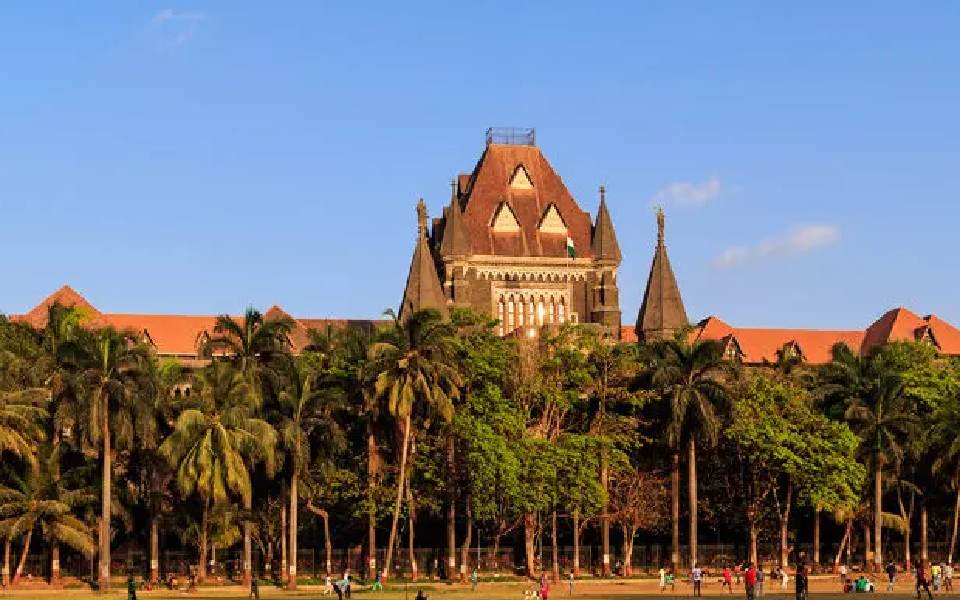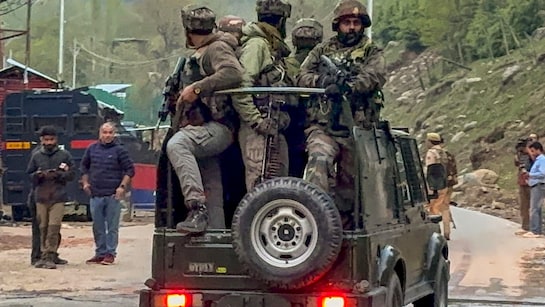Mumbai, Apr 9 (PTI): The Bombay High Court has imposed a cost of Rs 2 lakh on the Mumbai civic body for its "high-handed and arbitrary" action in demolishing a structure run by a charitable firm to provide food and shelter to cancer patients getting treated at Tata Memorial Hospital (TMH).
Justice Gauri Godse, in an order of April 4 made available on Wednesday, noted the Brihanmumbai Municipal Corporation (BMC) carried out the demolition "in unholy haste" without following due process and without any intimation to the occupier of the structure.
The bench, while pulling up corporation officers for showing a complete lack of sensitivity while proceeding with the demolition, imposed a cost of Rs 2 lakh on the BMC to be paid to the plaintiff within four weeks.
It was hearing a plea filed by the charitable firm against the BMC action.
The structure, situated on a plot adjacent to TMH, a premier institution in the Parel area engaged in education, research and comprehensive care of cancer patients located, was dismantled on January 4.
The court, while noting that an irreparable loss has been caused to the plaintiff, M/s Mehta & Co, directed the civic body to provide the firm a temporary alternate accommodation equivalent to the area of the demolished structure (1,319 sq ft) in the same vicinity.
"The corporation's officers have shown a complete lack of sensitivity while proceeding with the demolition of the structure which the plaintiff used for providing food and shelter to cancer patients undergoing treatment at Tata Memorial Hospital," the HC maintained.
"In a city like Mumbai, it is very difficult to get temporary shelter. Thus, I have no doubt in holding that the action of demolition has not only deprived the plaintiff of his rights, but also deprived cancer patients of their right to temporary shelter at the time of taking treatment," Justice Godse remarked.
The court noted that while it is the fundamental duty of every citizen to follow and abide by laws, the same rule applies to corporation officers too.
The HC said not granting any relief in such a rare and exceptional case would amount to putting a premium on the high-handedness and arbitrary action of the civic body's officers.
"Unholy haste shown on behalf of corporation officers to demolish the structure without any intimation, and on the day when the plaintiff was to pray for interim relief before a civil court, smacks of malafides and arbitrariness," the HC observed.
The court said this was an absolutely unfortunate case where the plaintiff's structure was "high-handedly and illegally" demolished by officers of the BMC under the garb of implementation of a redevelopment scheme.
The bench noted the plaintiff was occupying the demolished structure to provide charitable services of food and shelter to the poor and needy cancer patients receiving treatment at the hospital.
As per the petition filed by the plaintiff, the structure was pulled down even as the petitioner's plea against the demolition was pending before a civil court.
Let the Truth be known. If you read VB and like VB, please be a VB Supporter and Help us deliver the Truth to one and all.
Bengaluru: An overwhelming majority of people with disabilities in Bengaluru Rural and Tumakuru remain without health insurance coverage, with most having received no health support or assistive aids in the past year, according to a recent survey conducted by the National Centre for Promotion of Employment for Disabled People (NCPEDP) and the NGO Astha.
The report, as cited by Deccan Herald, surveyed 758 individuals—388 from Bengaluru Rural and 370 from Tumakuru—55 percent of whom were men. Alarmingly, the findings reveal that 96 percent of disabled persons in Tumakuru and 88 percent in Bengaluru Rural do not have access to health insurance.
Over 90 percent of respondents across both districts reported not having availed any form of health support or assistive devices last year. In addition to this, a large proportion of participants suffered from locomotor disabilities.
Education and employment statistics were equally stark—47 percent in Bengaluru Rural and 24 percent in Tumakuru were illiterate, and around 70 percent of all respondents were unemployed, relying entirely on family support. Most of the families in both districts earned less than Rs 1 lakh per annum.
Respondents expressed that their disabilities compounded existing hardships—ranging from limited access to education and employment to social exclusion and economic difficulties, added the report. Many also acknowledged vulnerability to climate change-related health impacts.
“The tragedy of the disability sector is that the basics are not in place. Health for people with disabilities is a matter of life and death; assistive aids cannot be populist schemes,” DH quoted Arman Ali, Executive Director of NCPEDP, as saying.
The report proposes a series of recommendations to address the systemic gaps: Creating disability-friendly public services, subsidising healthcare and improving accessibility to health insurance schemes, census based on the Rights of Persons with Disabilities (RPwD) Act, 2016, updating Disability IDs, community-based health management and private and charitable organisations' involvement, and capacity building of caregivers through self-help groups.




_vb_94.jpeg)
